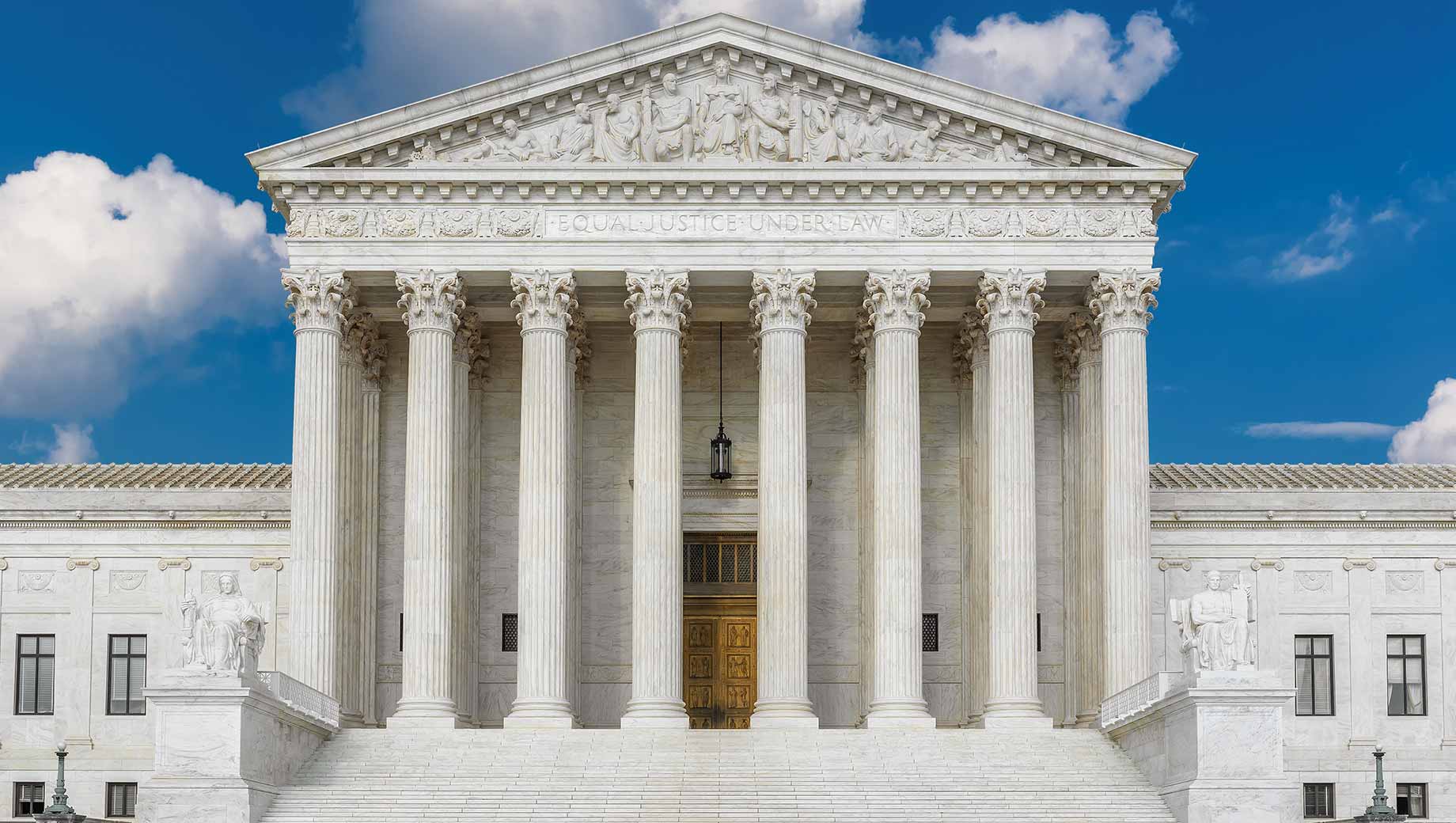BY JEFFREY M. JONES
GALLUP
JUNE 23, 2022

STORY HIGHLIGHTS

STORY HIGHLIGHTS
25% of Americans have confidence in Supreme Court, down from 36% in 2021
Current reading is five percentage points lower than prior record low
Confidence is down among Democrats and independents this year
WASHINGTON, D.C. -- With the U.S. Supreme Court expected to overturn the 1973 Roe v. Wade decision before the end of its 2021-2022 term, Americans' confidence in the court has dropped sharply over the past year and reached a new low in Gallup's nearly 50-year trend. Twenty-five percent of U.S. adults say they have "a great deal" or "quite a lot" of confidence in the U.S. Supreme Court, down from 36% a year ago and five percentage points lower than the previous low recorded in 2014.
These results are based on a June 1-20 Gallup poll that included Gallup's annual update on confidence in U.S. institutions. The survey was completed before the end of the court's term and before it issued its major rulings for that term. Many institutions have suffered a decline in confidence this year, but the 11-point drop in confidence in the Supreme Court is roughly double what it is for most institutions that experienced a decline. Gallup will release the remainder of the confidence in institutions results in early July.
The Supreme Court is likely to issue a ruling in the Dobbs v. Jackson Women's Health Organization case before its summer recess. The decision will determine the constitutionality of a Mississippi law that would ban most abortions after 15 weeks of pregnancy. A leaked draft majority opinion in the case suggests that the high court will not only allow the Mississippi law to stand, but also overturn Roe v. Wade, the 1973 court ruling that prohibits restrictions on abortion during the first trimester of pregnancy. Americans oppose overturning Roe by a nearly 2-to-1 margin.
In September, Gallup found the Supreme Court's job approval rating at a new low and public trust in the judicial branch of the federal government down sharply. These changes occurred after the Supreme Court declined to block a Texas law banning most abortions after six weeks of pregnancy, among other controversial decisions at that time. Given these prior results, it is unclear if the drop in confidence in the Supreme Court measured in the current poll is related to the anticipated Dobbs decision or had occurred several months before the leak.
The prior low in Supreme Court confidence was 30% in 2014, which was also the year when confidence in major U.S. institutions in general hit a low point, averaging 31%.
Public confidence in the Supreme Court has been lower over the past 16 years than it was before. Between 1973 and 2006, an average of 47% of U.S. adults were confident in the court. During this 33-year period, no fewer than four in 10 Americans expressed high confidence in the court in any survey, apart from a 39% reading in October 1991 taken during the Clarence Thomas confirmation hearings.
Since 2006, confidence has averaged 35% and has not exceeded 40% in any survey.
Democrats, Independents Behind Confidence Slide
Confidence in the Supreme Court is down by double digits among both Democrats (30% to 13%) and independents (40% to 25%) this year, but it is essentially unchanged among Republicans (37% to 39%).
The Democratic figure is the lowest Supreme Court confidence rating Gallup has measured for any party group historically, eight points lower than the 21% figure among Democrats in 2019. Independents' 25% confidence rating is the lowest registered for that group historically, with the prior low being 28% in 2015.
Republican confidence has been lower in the past than now, with the 26% measured in 2010 still the lowest for GOP supporters to date. That low point occurred after Barack Obama picked a liberal justice, Sonia Sotomayor, in 2009 and nominated another, Elena Kagan, in 2010 before the poll was conducted.
While Republicans' confidence hasn't changed much in the past year, it has come down significantly from 53% in 2020. That measure was taken during Donald Trump's reelection year -- after he had two of his nominees confirmed to the Supreme Court, but before a third Trump justice was confirmed days prior to his being defeated for reelection in November.
Bottom Line
The Supreme Court is likely to issue one of its most consequential rulings at a time when public confidence in the institution has never been lower. If, as expected, the conservative-leaning court rules to overturn Roe v. Wade, it is unclear whether that decision would further harm the institution's reputation among Americans or perhaps improve it if Americans agree with the court's reasoning. Invalidating Roe would allow state governments to decide whether abortion is legal or illegal in their state.
The public may have already taken the Supreme Court's stance on the abortion issue into account, with its decision on the Texas law and the leaked draft majority opinion on the Mississippi law. But an actual, rather than hypothetical or expected, decision may have more potency in shifting Americans' views of the court.
To stay up to date with the latest Gallup News insights and updates, follow us on Twitter.
Learn more about how the Gallup Poll Social Series works.
View complete question responses and trends (PDF download).
No comments:
Post a Comment